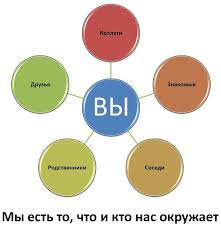
In the increasingly fast-paced world of 2025, many are finding themselves feeling overwhelmed and disconnected. The relentless pursuit of success, often measured by external achievements, can leave us feeling empty and unfulfilled. Intentional living offers a powerful antidote to this modern malaise. It's a conscious and deliberate approach to life, where you align your actions with your values, passions, and goals. It's about curating a life that truly reflects who you are and what matters most to you, moving from a reactive hustle to a proactive harmony.
Intentional living isn't a one-size-fits-all solution; it's a deeply personal journey. It requires self-reflection, honest assessment, and a willingness to make changes. This guide will provide you with the tools and insights to embark on your own path towards a more intentional and meaningful life.
Understanding the Principles of Intentional Living
At its core, intentional living is about:
- Self-Awareness: Knowing your values, passions, strengths, and weaknesses. What truly matters to you?
- Purpose: Having a clear sense of direction and understanding why you're doing what you're doing.
- Deliberate Action: Making conscious choices that align with your values and purpose.
- Mindfulness: Being present in the moment and appreciating the simple things in life.
- Simplicity: Decluttering your life, both physically and mentally, to focus on what's essential.
Practical Guidance: How to Cultivate Intentional Living
Here's a step-by-step guide to help you incorporate intentional living into your daily life:
1. Self-Reflection and Values Clarification
The foundation of intentional living is understanding yourself. Take some time for self-reflection. Ask yourself these questions:
- What are my core values? (e.g., honesty, kindness, creativity, freedom)
- What are my passions? What activities make me feel energized and alive?
- What are my goals? What do I want to achieve in the short-term and long-term?
- What am I grateful for?
- What areas of my life feel misaligned with my values?
Consider journaling, meditation, or talking to a trusted friend or therapist to gain clarity. Resources like the VIA Character Strengths Survey ([https://www.viacharacter.org/](https://www.viacharacter.org/)) can also provide valuable insights into your strengths and values.
2. Setting Intentions and Goals
Once you have a clearer understanding of your values, you can start setting intentions and goals that align with them. Your intentions are the guiding principles that will inform your daily actions. Your goals are the specific outcomes you want to achieve.
For example, if one of your core values is creativity, your intention might be to "express my creativity every day." Your goal might be to "complete a painting by the end of the month."
Use the SMART goals framework to make your goals more achievable:
- Specific: Clearly define what you want to achieve.
- Measurable: How will you know when you've achieved your goal?
- Achievable: Is your goal realistic and attainable?
- Relevant: Does your goal align with your values and purpose?
- Time-bound: Set a deadline for achieving your goal.
3. Decluttering and Simplifying Your Life
Intentional living often involves decluttering your life, both physically and mentally. Get rid of possessions that you no longer need or use. Unsubscribe from unnecessary emails and social media accounts. Simplify your schedule by saying no to commitments that don't align with your values.
Consider adopting a minimalist lifestyle, focusing on quality over quantity. This doesn't mean you have to get rid of everything you own, but rather be more mindful of your consumption habits.
4. Cultivating Mindfulness and Gratitude
Mindfulness is the practice of being present in the moment, without judgment. It involves paying attention to your thoughts, feelings, and sensations. Gratitude is the practice of appreciating the good things in your life.
Incorporate mindfulness practices into your daily routine, such as meditation, yoga, or simply taking a few deep breaths. Keep a gratitude journal and write down things you're grateful for each day. These practices can help you appreciate the present moment and reduce stress.
5. Building Meaningful Relationships
Strong social connections are essential for well-being. Nurture your relationships with family and friends. Spend time with people who support and uplift you. Be present and engaged when you're with them. Limit your interactions with toxic or negative people.
6. Prioritizing Self-Care
Taking care of your physical and mental health is crucial for intentional living. Make sure you're getting enough sleep, eating healthy foods, and exercising regularly. Engage in activities that you enjoy and that help you relax and recharge.
7. Continuous Learning and Growth
Intentional living is an ongoing journey of learning and growth. Be open to new experiences and perspectives. Read books, take courses, and attend workshops that align with your interests and goals. Surround yourself with people who inspire you to grow and learn.
Long-Term Considerations for Maintaining an Intentional Lifestyle
The shift to intentional living is not a one-time event, but rather an ongoing process. To sustain this lifestyle in the long run, consider the following:
Regular Self-Assessment
Periodically revisit your values, goals, and intentions. Are they still aligned with your current life situation? Are you making progress towards your goals? Are there any areas of your life that need adjustment?
Budgeting and Financial Planning
Intentional living often involves making conscious choices about your spending habits. Develop a budget that reflects your values and priorities. Avoid impulse purchases and focus on spending your money on things that bring you joy and fulfillment. Consider the long-term financial implications of your lifestyle choices.
Environmental Impact
Extend your intentionality to the environment. Consider the environmental impact of your consumption habits. Choose sustainable products and practices. Reduce your carbon footprint. Support businesses that are committed to environmental responsibility.
Mindful Technology Use
In the digital age, it's easy to get caught up in the constant stream of information and notifications. Be mindful of your technology use. Set boundaries and limits. Disconnect from technology regularly to reconnect with yourself and the world around you.
Maintaining Flexibility and Adaptability
Life is full of unexpected changes. Be flexible and adaptable. Don't be afraid to adjust your plans and goals as needed. Embrace change as an opportunity for growth and learning. Intentional living is not about rigidity, but rather about living in alignment with your values in a dynamic world.
Table: Comparing Different Approaches to Intentional Living
| Approach | Focus | Key Practices | Potential Benefits |
|---|---|---|---|
| Minimalism | Reducing possessions and consumption | Decluttering, mindful purchasing, focusing on experiences | Reduced stress, increased freedom, financial savings |
| Mindfulness | Being present in the moment | Meditation, yoga, mindful breathing, sensory awareness | Reduced anxiety, improved focus, increased self-awareness |
| Purpose-Driven Living | Aligning actions with a greater purpose | Identifying values, setting meaningful goals, volunteering, contributing to a cause | Increased motivation, sense of fulfillment, positive impact on the world |
| Slow Living | Slowing down and savoring life's simple pleasures | Mindful eating, spending time in nature, disconnecting from technology, prioritizing relationships | Reduced stress, improved well-being, increased appreciation for life |
Potential Pitfalls to Avoid
While the pursuit of intentional living is rewarding, it's important to be aware of potential pitfalls:
- Perfectionism: Don't strive for perfection. Intentional living is a journey, not a destination.
- Rigidity: Be flexible and adaptable. Don't get stuck in rigid routines.
- Comparison: Avoid comparing yourself to others. Focus on your own journey.
- Self-Judgment: Be kind and compassionate to yourself. Don't judge yourself harshly for making mistakes.
- Burnout: Prioritize self-care to avoid burnout.
FAQ: Frequently Asked Questions About Intentional Living
- Q: Is intentional living expensive?
- A: Not necessarily. In fact, it can often lead to saving money by reducing unnecessary spending and focusing on experiences rather than material possessions.
- Q: How long does it take to see the benefits of intentional living?
- A: It varies from person to person. Some people experience benefits immediately, while others may take several weeks or months to see significant changes. The key is to be patient and consistent.
- Q: Can intentional living help with stress and anxiety?
- A: Yes, it can. By cultivating mindfulness, simplifying your life, and aligning your actions with your values, you can reduce stress and anxiety levels.
- Q: Is intentional living a selfish pursuit?
- A: No, it's not. By taking care of yourself and living in alignment with your values, you're better able to contribute to the well-being of others. Intentional living often leads to a greater sense of empathy and compassion.
- Q: What if I don't know what my values are?
- A: That's okay! Take some time for self-reflection. Experiment with different activities and see what resonates with you. Talk to trusted friends or therapists. It's a process of discovery.
Disclaimer: This information is for informational purposes only and should not be considered professional advice. Individual results may vary.
Sources
- Harvard Business Review, "How to Practice Intentional Living" ([https://hbr.org/2021/05/how-to-practice-intentional-living](https://hbr.org/2021/05/how-to-practice-intentional-living))
- Mindful.org, "What Is Mindfulness?" ([https://www.mindful.org/what-is-mindfulness/](https://www.mindful.org/what-is-mindfulness/))
- The Minimalists, "About Minimalism" ([https://www.theminimalists.com/minimalism/](https://www.theminimalists.com/minimalism/))
In conclusion, intentional living offers a path towards a more fulfilling and meaningful life. By understanding your values, setting intentions, simplifying your life, and cultivating mindfulness, you can create a life that truly reflects who you are and what matters most to you. Remember that it's an ongoing journey, not a destination, and that flexibility and self-compassion are essential. Embrace the process and enjoy the benefits of living a more intentional life.




